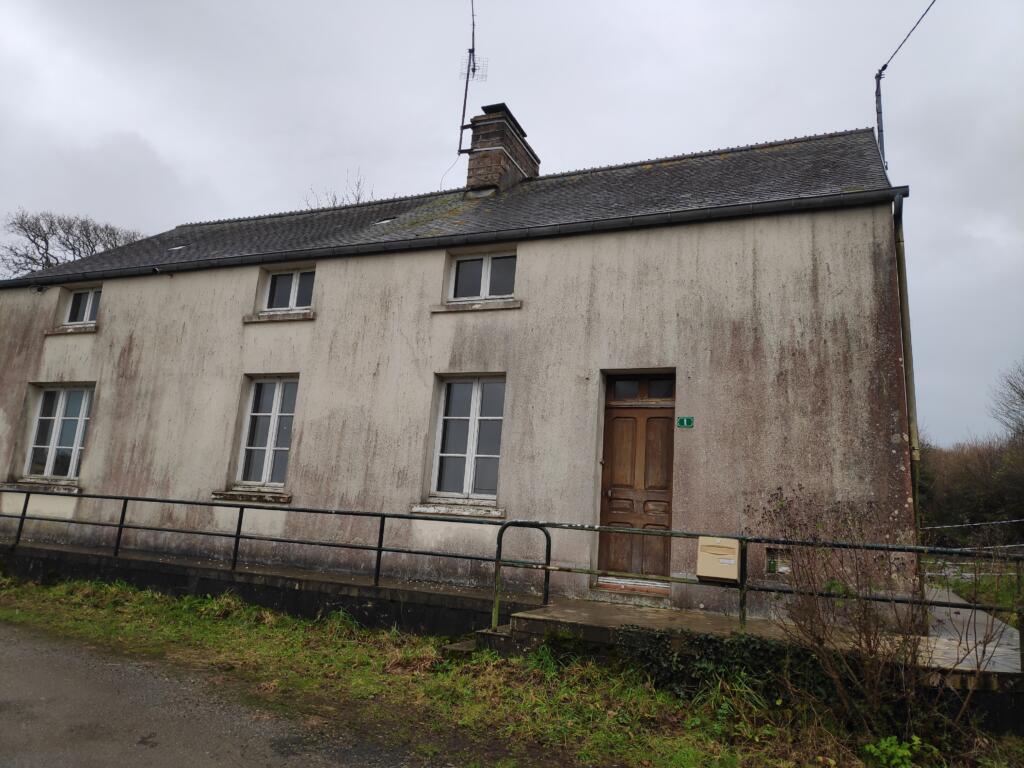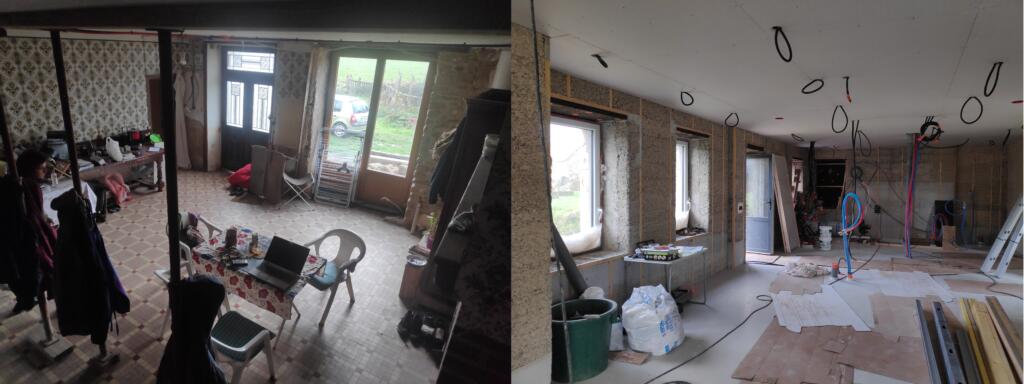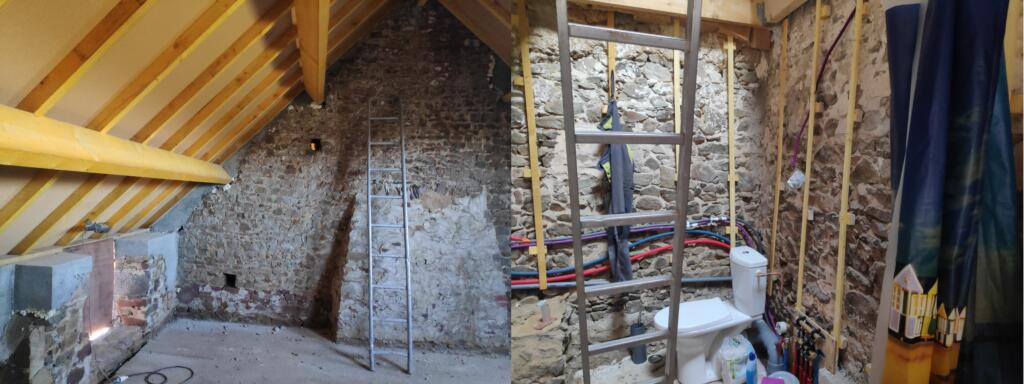Through a ‘hands-on’ home renovation and energy savings scheme, Les 7 Vents is helping people feel more comfortable at home, fighting energy poverty and building a sense of community.
Created in 1998, Les 7 Vents is a pioneer in community energy and sustainable development in La Manche, a department of Normandy in northern France. Many of the houses in this rural region are old and were constructed with stone and earth, which means they easily leak heat. One in six households spend a significant portion of their disposable income on heating expenses and are therefore in a situation of energy vulnerability. Despite the potential to save money for households in the long term, the extensive renovations needed on these homes are often prohibitively expensive.

This is where Les 7 Vents saw an opportunity to help. In an initial project, a team of Les 7 Vents volunteers joined forces to help a single woman who had been slowly renovating her house for two years, supported by a local builder. Les 7 Vents participants stepped up to help apply a finishing coat on a thermal corrector – an undertaking that, according to the client, would have been long, tiring, and stressful to do alone. At the end of the volunteer workday, the woman was effusive.
“I thought that the final result would not be particularly aesthetic,” she admitted. “But when I see the work done today, it’s really lovely and it motivates me to try and integrate volunteering into other parts of the work still to be done on my house. Seeing what can be done by such a motivated and kind team energises me and helps me stay motivated when thinking about the rest of the work. Finally, I will be able to install the kitchen! What an amazing feeling to see things done!”
Supported and shared self-renovation
This model of engaging the community to help with renovations as a means to address energy vulnerability in La Manche was started by another association called Enerterre in the early 2010s. While some government aid mechanisms were available for people living in earthen houses, many of these dwellings needed more substantial renovations to improve energy efficiency. Enerterre created a solidarity system by which volunteers could sign up to help with tasks that could be done by non-experts, under the guidance of a professional.
The scheme was so successful, Enerterre created a dedicated association to organise the volunteers and building work. The practice, which has become used in other places, is known as ‘supported and shared self-renovation’ (3SR).
Over the last decade, Les 7 Vents referred several people in energy poverty to Enerterre. Now, in the context of CEES, it is getting more directly involved in 3SR projects with the aim of scaling up the practice. In fact, Les 7 vents formed its own Renovation and Energy Savings Counselling Team and set out a three-fold mandate.

First, to be confident Les 7 Vents can deliver 3SR to more households, the Team has a goal to enlist more construction professionals.
Its second focus is to connect with households in need of renovation. In this case, the Team answers questions related to energy savings in general and about renovations more specifically. It also explains any state aid that can be mobilised to support such work for people their situation. This first contact with a resident often represents the true starting point of a 3SR project.
Finally, as is the case for Enerterre, Les 7 Vents takes the lead role in organising the collaborative building sites and managing the volunteer teams.
Solidarity is an important element of 3SR, including mutual exchange among people at different stages of renovation. Those with several years’ experience help newcomers analyse the feasibility of their project, assess the ideal number of volunteer and equipment needs for the project, and provide advice on making the call for volunteers, organising the construction days, and completing any necessary administrative procedures. Also, people who benefit from the volunteer work on their own homes are expected to help in future projects, while those who volunteer can ‘bank’ time that will be repaid through volunteers coming to help them.
Challenges with participative renovation
While enthusiasm for participative renovation projects is growing, they come with particular challenges. Finding available, willing and competent craftsmen is difficult as local builders are often overwhelmed with their own projects. Their expertise is critical to guide the group of on-stie volunteers and ensure final quality of the work.
In turn, assessing what volunteers can do on a given project and the competencies needed requires a case-by-case approach. And all sites are different: some will require one or two days of volunteer time; others will need two to three weeks.

Ultimately, timing is everything – and can be super-complicated. Aside from needing to align the calendars of the resident of the house, the builder and the volunteer team, making sure materials and equipment are available at the right time and the right place is vital. Often, it means setting up a construction site in a short timeframe.
With the onset of summer – when the weather is good and people are keen to be outdoors – Les 7 Vents has organised its next round of work. In the coming 18 months, Les 7 Vents aims to support 15 families through the 3SR model and to set up a further nine construction sites: five in the summer of 2023 and a further four in 2024. To date, it has supported 11 ‘interested’ households and launched its first 3SR project.
Watch this space for a CEES explainer and photo-series on 3SR!